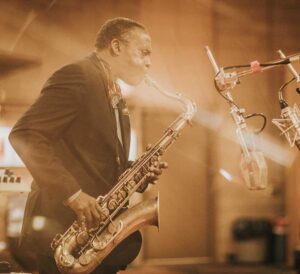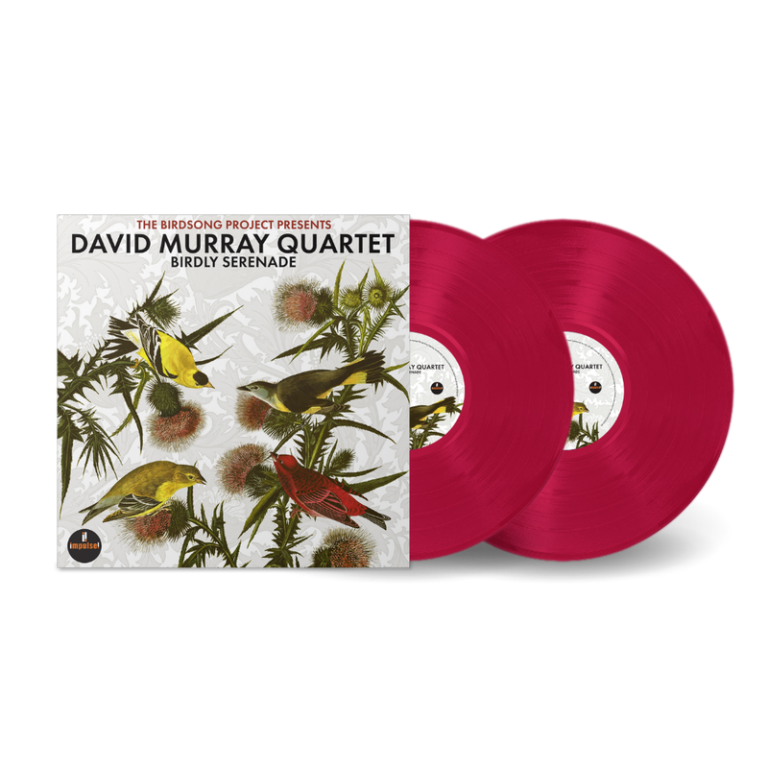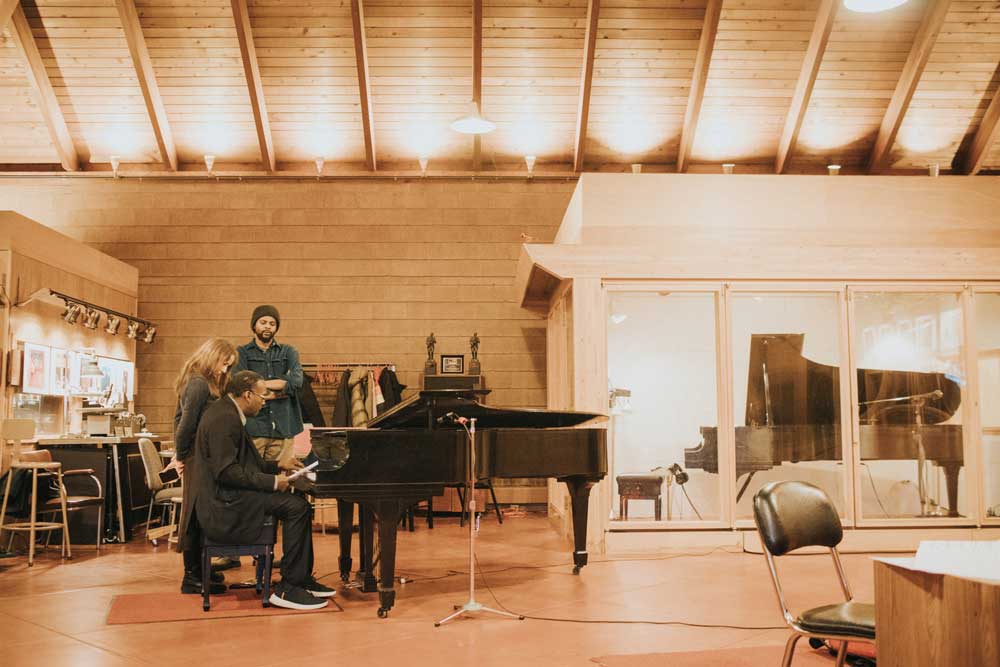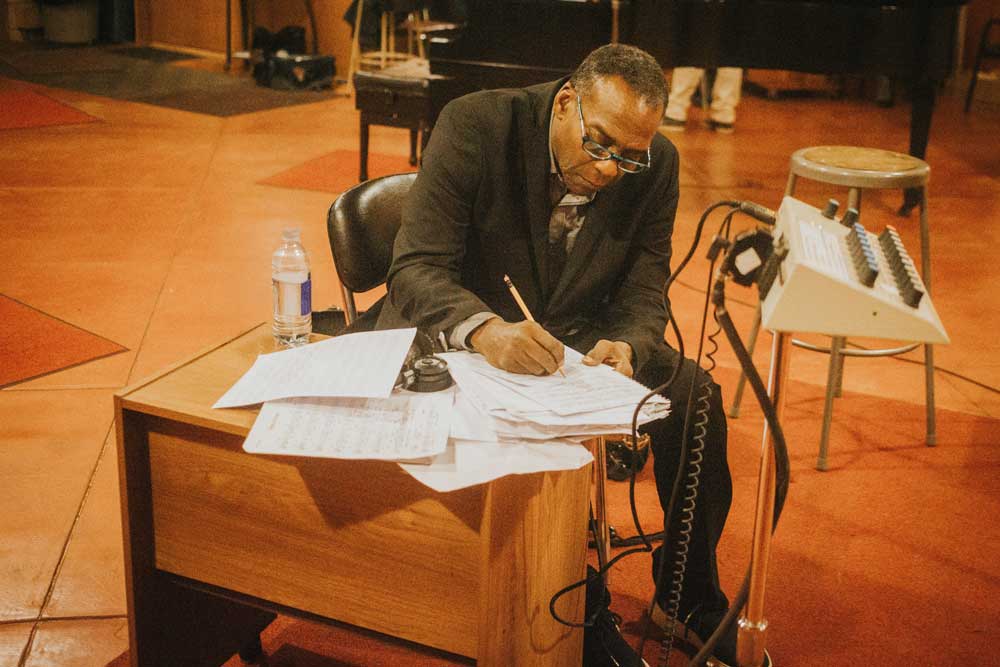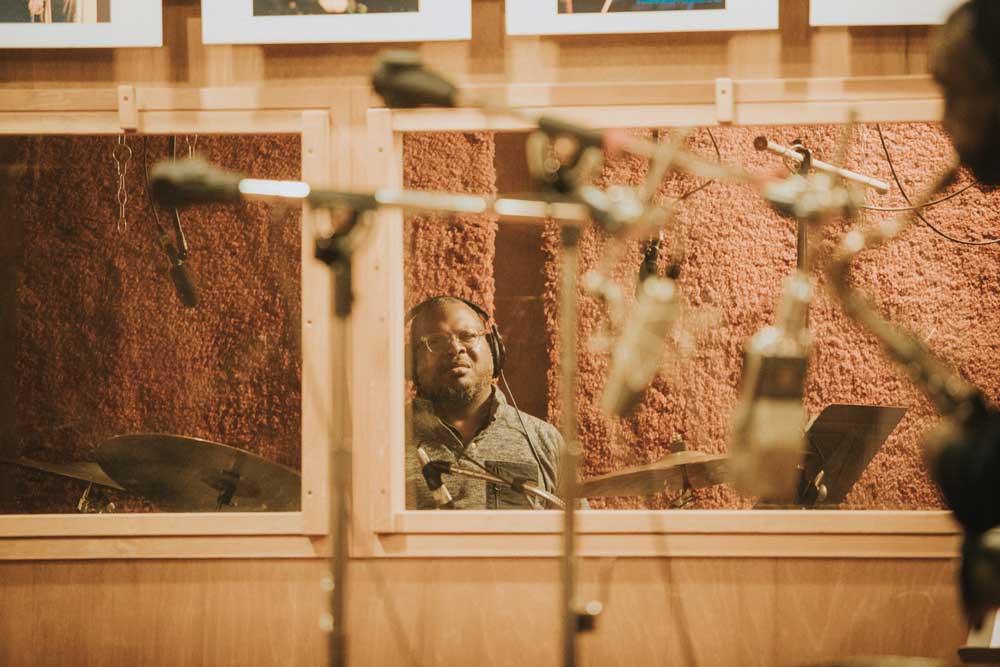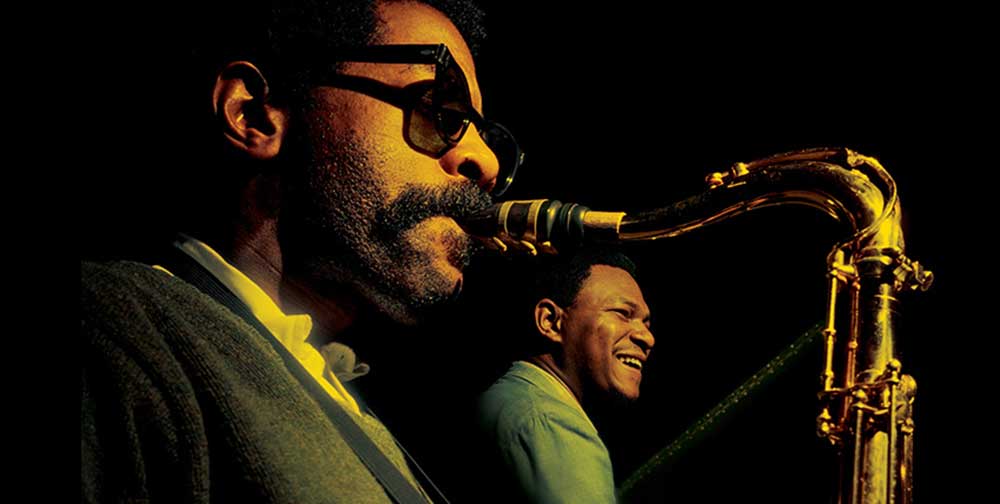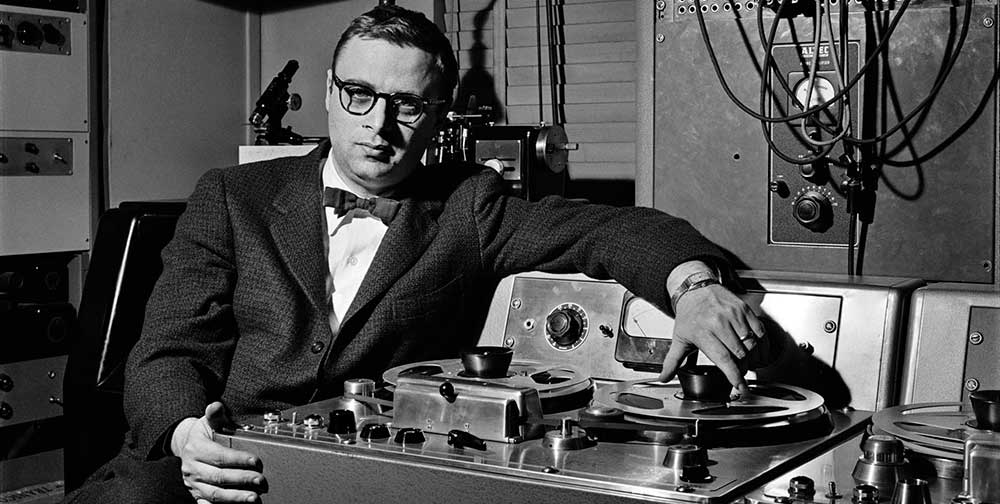The latest incarnation of the David Murray Quartet have followed their acclaimed album of 2024, “Francesca”, with what on the surface is an unexpected project for such a fiery group of players – an album inspired by birdsong.
“Birdly Serenade”, David Murray’s first album for the Impulse! label, has precedents in jazz though. “At home I used to play, and the birds always used to whistle with me. I would stop what I was working on and play with the birds,” Eric Dolphy recalled in the April 1962 issue of Downbeat. “Birds have notes in between our notes… It’s really something!”
Like French composer, organist, and ornithologist Olivier Messiaen before him, the purity and complexity of birdsong offered Dolphy new possibilities for his own music. As Derek Schilling writes in the erudite “Birdly Serenade” liner notes: “If David Murray, unlike Dolphy, never practiced alongside birds growing up in the Bay Area, early study of flute and piccolo attuned him to the upper registers of what would become his signature horns, tenor saxophone and bass clarinet.”
The morning after his Quartet’s performance at Blue Note, New York, I start by asking Murray for his first encounters with birds. “My family actually used to shoot quail and pheasant to eat in the 1960s, but that was another time and we have moved on,” he says. “As I said on stage last night, young people at the supermarket today might buy chicken without knowing what the bird looks like. As a society, we have gone into decline with regard to [knowing] what animals are.”
David Murray burst onto the New York loft jazz scene in the mid 1970s with the World Saxophone Quartet (WSQ) alongside three members of the Black Artists Group from St. Louis: Julius Hemphill, Oliver Lake and Hamiet Bluiett. Through his fiery but graceful playing on the WSQ’s “Point Of No Return” and his own albums like “Flowers for Albert” on India Navigation, he quickly established himself as a worthy successor to the free jazz greats of the 1960s.
Recorded at Van Gelder Studio with his Quartet, “Birdly Serenade” is Murray’s first under his own name for the legendary Impulse! label. “Of course I’m following in the footsteps of John Coltrane, Archie Shepp and Sonny Rollins, who have recorded for this incredible label, but I am also representing the growth of the tenor saxophone in the times we are living in,” he says. “The thing that differentiates me is I am a prolific composer and arranger as well. I write for big bands, I’ve written for strings, I’ve done several operas.”
Respecting the music’s past while pushing it forward, Murray has released over 200 titles and played on many sessions for other jazz heavyweights. This has ranged from Jack DeJohnette for ECM in the early 1980s to his long-standing partnership with Kahil El’Zabar and collaborations with poets like Amiri Baraka, Ishmael Reed and Saul Williams.
As well as reconciling free jazz and the avant-garde with the history of black music, from gospel and the blues to swing and R&B, he has been a natural sonic explorer – be it with the Gwo Ka Masters project investigating the Creole drum music of Guadeloupe, to “Fo Deuk Revue” recorded in Dakar with Senegalese musicians, or his David Murray Cuban Ensemble and Latin Big Band.
More recently in 2023, Murray released the “Plumb” album with drummer Questlove of hip-hop band The Roots, whom he’d already performed with on the 1996 album “Illadelph Halflife”. In the same year he activated his new Quartet with a young line-up of bassist Luke Stewart, drummer Russell Carter and pianist Marta Sanchez.
The acclaimed album “Francesca” recorded at Hardstudios in Winterthur, Switzerland, showed Murray continuing to pass the baton on to the new generation. “I have to work with the young people. I need a band with that energy that can push me”, he says. “Last night we played at Blue Note and I was a little tired, but they picked me up. They give me the little boost and the next minute I’m carrying them. Once the adrenalin kicks in, we are on an even keel.”
Photos: Gregg Greenwood.
The Quartet have returned with “Birdly Serenade” recorded at Van Gelder Studio, but envisaged somewhere between the sky and earth. The latest chapter in Murray’s musical journey began life as a new instalment of The Birdsong Project, conceived by soundtrack music supervisor Randall Poster during the pandemic. The result was over 170 pieces of original music from artists ranging from Laurie Anderson to Kamasi Washington and a 20 LP box set that earned Poster a Grammy in 2024.
Murray’s connection to the project began when his wife, the artist, fashion designer and writer Francesca Cinelli, was invited to a writer’s retreat at Blue Mountain Lake in the Adirondacks, New York State. Just prior to the trip, Murray was contacted by Randall Poster. “I had originally just intended to support Francesca and hang out at the retreat,” he says. “But what was I going to do, go fishing? I really had no idea. Then Randall came up with this idea and we jumped on it. So it was like a higher power put it in our path.”
The creative spark for the album came when Cinelli began to write poems inspired by the nature around them. “I had gone on the retreat to write the chronicles of our tour from 2021 but when we arrived over there it was such a beautiful place, it needed words to describe it,” she says. “So David started to compose at one of the houses amongst the forest and lakes where there was a music studio, seeing how my words could work with the music. I started to make a bridge to the music with my poetry. And when you start writing about birds, it becomes an analogy for so many things that we understand in ourselves about relationships and love.”
While David Murray’s name is on the front cover, “Birdly Serenade” is very much a family affair. “Francesca really was the motivator of this project and the inspiration for the album,” he says. “I’ve taken poetry before from Amiri Baraka, Ishmael Reed, Larry Neal, and I’ve done several operas and worked with librettists, so I have a lot of experience and know how powerful the spoken word is and how to translate that into music. You give me a text and I’ll give you a song. I know how to do this stuff.”
Having worked with so many poets I’m curious as to how Murray translates text into music. “You have to pay attention to the Iambic pentameter [the rhythmic pattern in the poetry] of the words then you have to consider the syllabic pentameter,” he replies. “I’m not trying to get all professorial on you, but I know this shit. And I know it both from academia and from actually putting it onto the stage.”
The first of the poems to be turned into music was the opener “Birdly Serenade”. Over a lilting 3/4 time waltz, singer Ekep Nkwelle intones the prose of Cinelli, that evocatively captures their inspiring surroundings as “a hazy silence, caresses the peaceful waters of the sleepy lake” while “the tremolos of a diving bird break through the mist.”
Throughout the eight-track album, Murray’s melodic and improvisational sensibilities are matched by the intuition of his Quartet. “When a band like this has been together for a couple of years you just flow,” he says. “We really inspire each other and are like family now. We’ve toured together and done two records, so you become telepathic in fact. There doesn’t even need to be eye contact. The vibration is very big in the kind of music that we play. And I put stock into that.”
That vibration reaches a fiery peak on “Black Birds Gonna Lite Up the Night” offset by the tenderness of “Song of the World (for Mixashawn Rozie)”. On this warmest of numbers, Murray switches to a wood-toned bass clarinet for Ekep Nkwelle’s beautifully recited verse of Cinelli, dedicated to one of the indigenous artists they met. “I wrote that after witnessing Mixashawn’s relationship with nature that was so simple, it really made me cry,” says Cinelli.
If you haven’t caught the Quartet live you can see them in full flight on a You Tube video of “Capistrano Swallow” filmed at Van Gelder Studio. This turbulent and meter-shifting improvised piece evokes the movement Murray experienced on one of his other early encounters with birds. “When I was a kid my father used to take use to the Mission San Juan Capistrano outside Los Angeles to watch the swallows,” he says. “To see them shooting out and back into the cliffs is incredible. They look like they are going to bump into each other but they never do.”
With “Birdly Serenade”, Murray has done his part to raise awareness of these masters of the sky that need our love and protection. “Birds are incredible creatures and barometer of what state the earth is in,” he says. “And bees are too. We are also losing them in their thousands. So maybe for my next album Randall will say, let’s do something on bees. You just never know.”
Andy Thomas is a London based writer who has contributed regularly to Straight No Chaser, Wax Poetics, We Jazz, Red Bull Music Academy, and Bandcamp Daily. He has also written liner notes for Strut, Soul Jazz and Brownswood Recordings.
Header image: David Murray. Photo: Gregg Greenwood.


